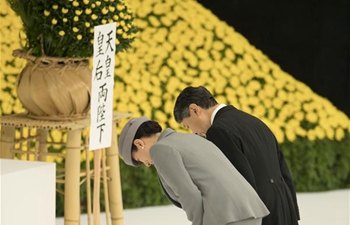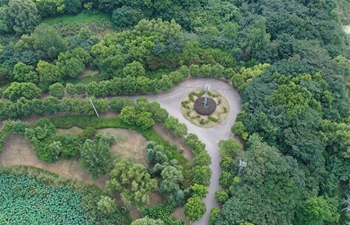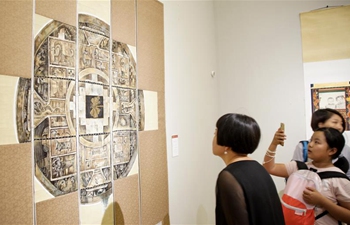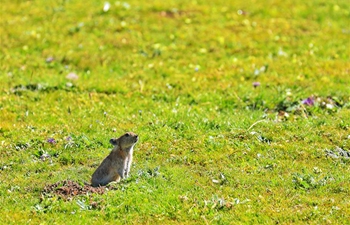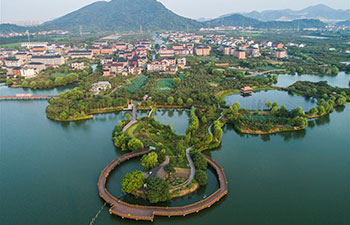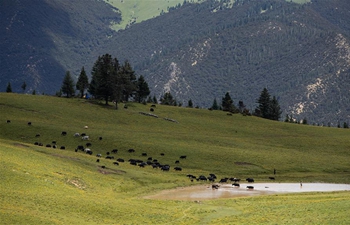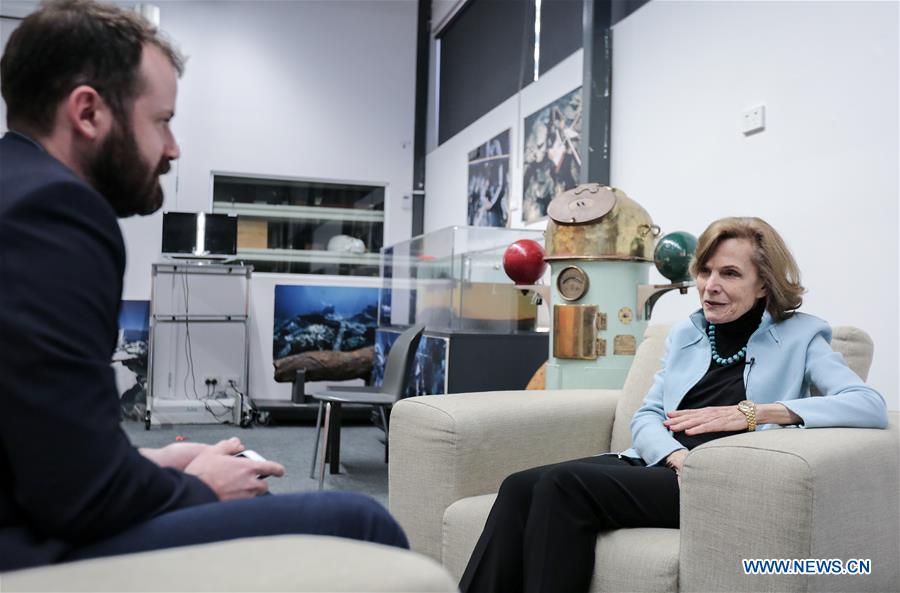
U.S. marine biologist and ocean explorer Sylvia Earle speaks during an interview with Xinhua in the Maritime Museum in Sydney, Australia, on Aug. 13, 2019. Sylvia Earle said that keeping the oceans healthy is more critical now than ever. Earle, 83, is in Australia this week at the Sydney Science Festival, visiting the city's spiritual home of oceanic education, the Maritime Museum, to deliver an address on the "State of our Oceans." (Xinhua/Bai Xuefei)
by Duncan Murray
SYDNEY, Aug. 15 (Xinhua) -- U.S. marine biologist and ocean explorer Sylvia Earle told Australian audiences that keeping the oceans healthy is more critical now than ever.
Earle, 83, is in Australia this week at the Sydney Science Festival, visiting the city's spiritual home of oceanic education, the Maritime Museum, to deliver an address on the "State of our Oceans."
The Maritime Museum's ongoing programs and exhibits seek to educate the public on the importance and fascinating nature of the aquatic environments, providing an ideal backdrop for the discussion.
Right now humanity is at a crossroads, Earle explained, and by failing to act "we are irreparably damaging our one and only home planet, right down to the air we breath."
"Air is about 20 percent oxygen, 80 percent nitrogen and just enough carbon dioxide to power photosynthesis," Earle explained.
"The plants and the phytoplankton in the ocean take up that carbon dioxide, generate food on the land and in the sea, and release oxygen to the atmosphere."
"It's taken a long time, we're talking about hundreds of millions of years of that chemistry changing over time to have a planet that is hospitable for us today."
"It's taken us a very short time to make inroads to destroy the natural world on a level that threatens our existence."
More than half of the oxygen on Earth is created in the ocean by microscopic marine algae called phytoplankton, the smallest but most abundant of which is Prochlorococcus.
"We look at trees and we say 'thank you trees you generate oxygen,' we should say thank you Prochlorococcus you tiny little bacterium you, capturing carbon and putting oxygen into the atmosphere," Earle said.
However, Prochlorococcus along with the rest of the marine habitat is under threat from human activity.
A study published by Australia's Macquarie University in May showed that Prochlorococcus are susceptible to the toxins which leach from the plastic bags that litter oceans and waterways.
The team from Macquarie found that exposure to chemicals leaching from plastic pollution interfered with the growth, photosynthesis and oxygen production of Prochlorococcus.
If people are to truly appreciate planet Earth's reliance on these interconnected ecosystems, they should be taught from an early age at school alongside language and maths, Earle says.
"We should teach children the names of Prochlorococcus, we should celebrate Diatoms, you can make a poem about Coccolithophorids, because they keep us alive," Earle said.
These phytoplankton, tiny though they are, are what makes the beautiful Earth a place worth saving.
"It's the last chance we have right now, climate scientists say the next 10 years will make it or not, based on what we do or fail to do to keep this planet within a range that is hospitable for us," Earle said.
"We must understand that we're all connected, that we need to work together as life on Earth to protect the one place in the universe that is our home."
